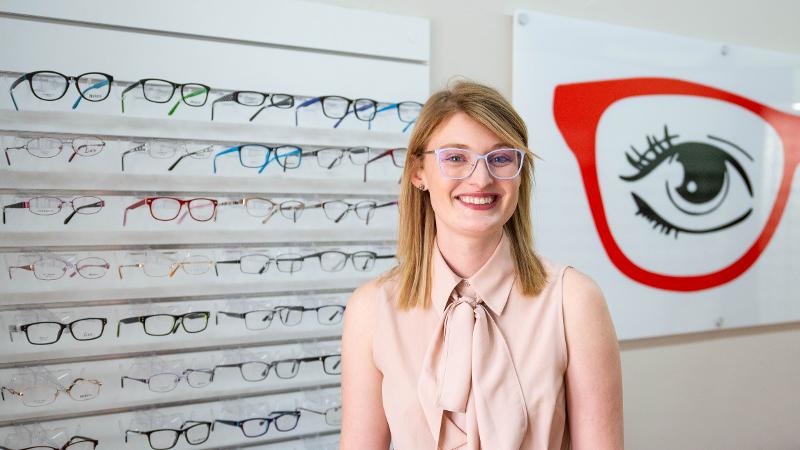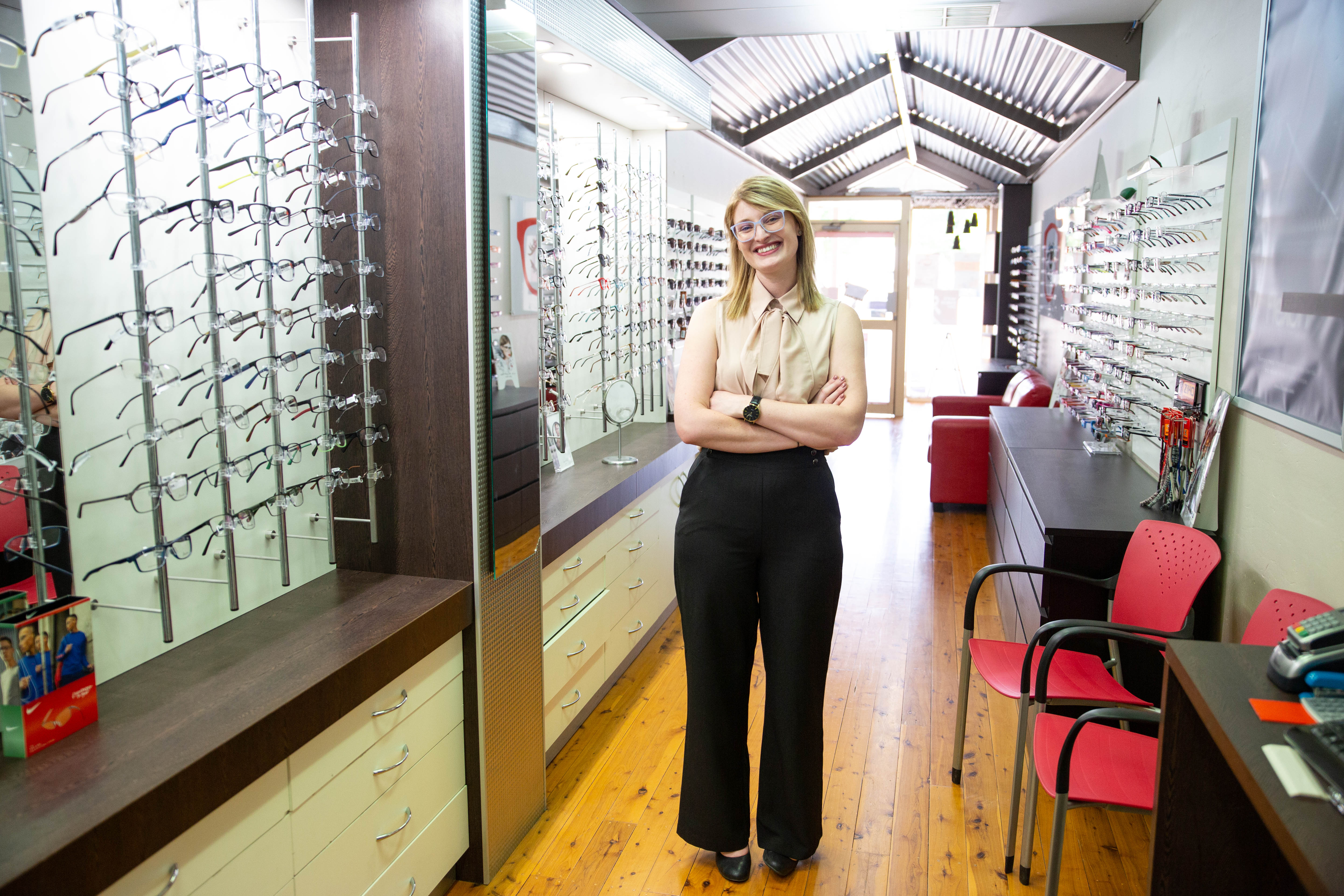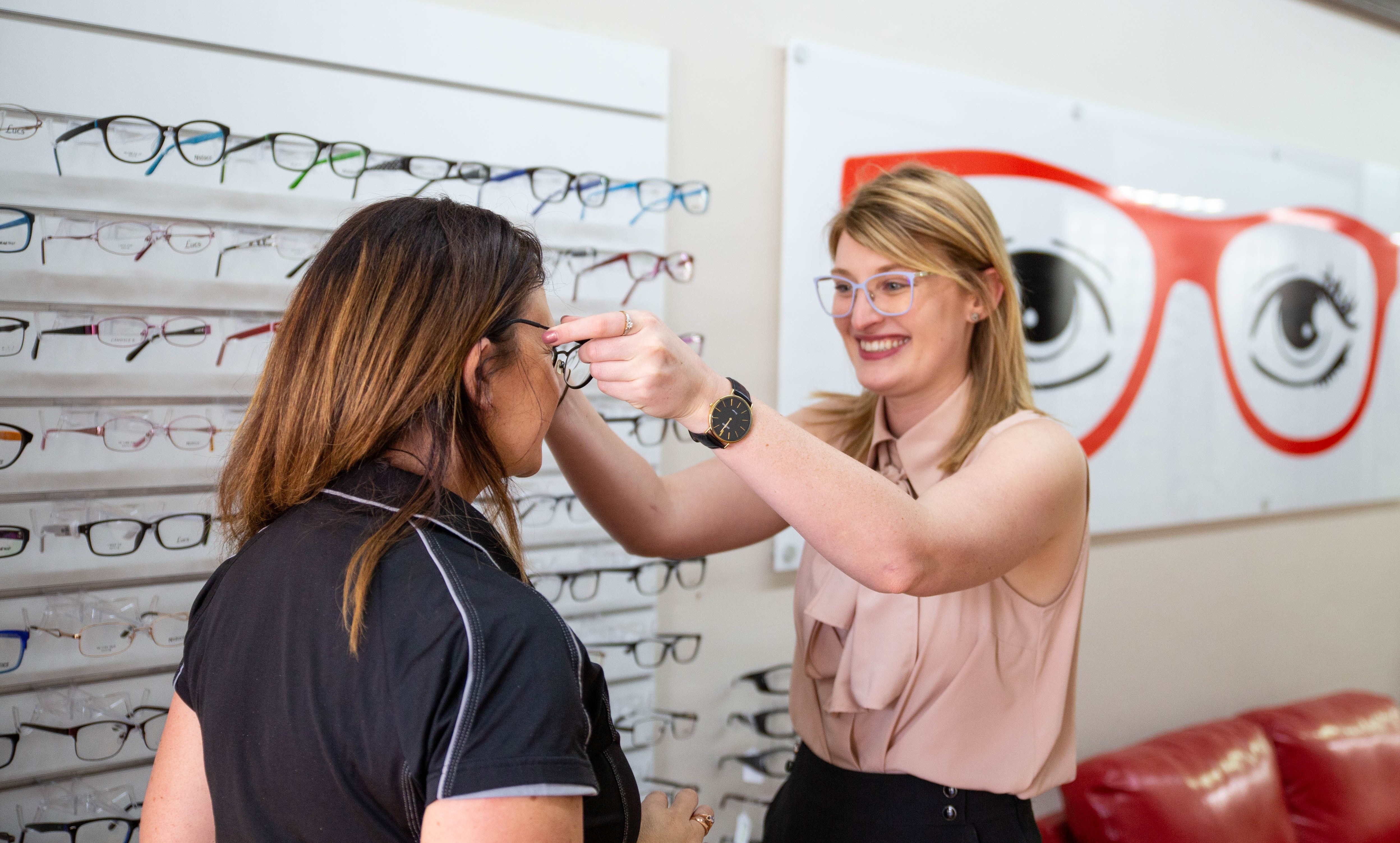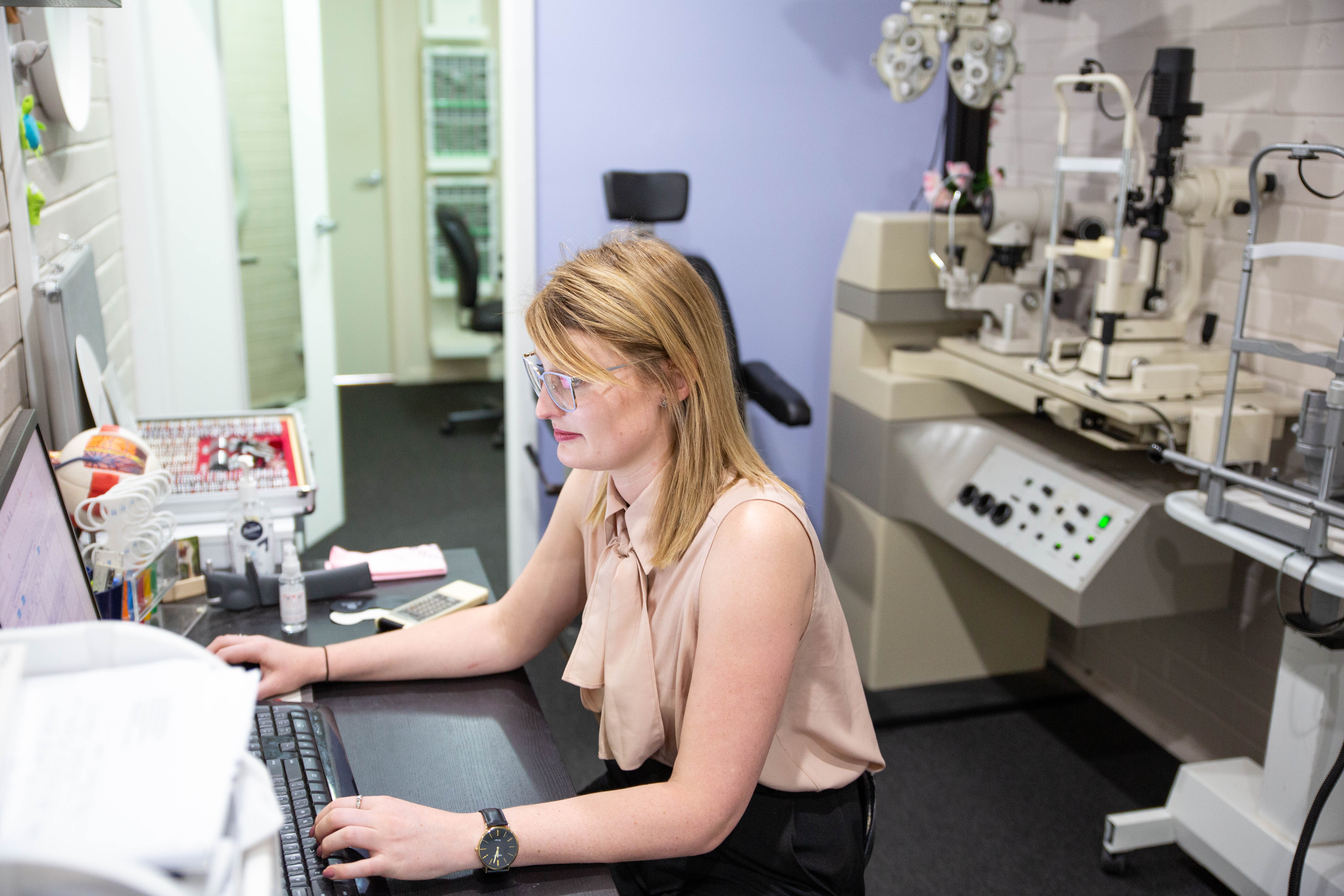
It's a bit of a challenge when you've got your heart set on a career in health, but realise you faint at the sight of blood or needles. But, luckily, a regular eye check-up during Year 10 proved to be a light bulb moment for QUT graduate Lauren Hutchinson.
She mentioned her career predicament to her helpful local optometrist during her eye test and he suggested she might like optometry and even offered her a few days' work experience to find out.
The rest, as she says, is history and she's never looked back.
"I'm now an optometrist in rural New South Wales," she said.
"I see patients for eye tests here in Forbes but I also travel around central west New South Wales to small communities, schools and nursing homes so that people who would normally not be able to access this service can still see an optometrist."
Lauren is a Murrawarri/Wiradjuri woman from Molong – a small town of less than 2000 residents that's located in the same region she now serves.
"Growing up in rural New South Wales I was always aware of the lack of services that were available to communities like mine," she said.
"I wanted to be able to give back. What ultimately lead me to optometry was being able to spend time with my childhood optometrist and see first-hand what he did … I loved it!
"I'd always planned to head back and practise rurally after I graduated from uni. I chose my current position at Eyewear Specs because it gave me the flexibility to pursue my passions in optometry, children's vision, community health and Indigenous health.
"I love working with people, and being able to travel around the central west means I get the chance to meet so many different people with their own amazing stories."

It's a five-year study journey to become a registered optometrist and Lauren completed her three-year Bachelor of Vision Science at QUT in 2015 and her two-year Master of Optometry in 2017. (QUT is one of only six universities in Australia that offer optometry.)
"My time at QUT definitely prepared me to be able to be flexible in my workplace and the way that I test," she said.
"I had some amazing opportunities to volunteer at health screening days, schools and Aboriginal Medical Services. Getting that experience in testing outside of the traditional office setting was crucial in enabling me to now do my outreach work. It showed me that optometry wasn't just done in a dark office and that, with the skills I gained from QUT, I could take this show on the road."
Although from interstate, Lauren chose QUT in Brisbane because of a combination of family reasons and the strength of the course and its practical opportunities.
"Being from a very small town, the idea of moving to the city to study was a daunting one," she said.
"I have family in Brisbane though and, although Sydney is closer to home, Brisbane has always felt more comfortable to me. When I was looking at optometry degrees it was a pretty easy decision to head somewhere that felt more like home."
The QUT Health Clinics were also a big drawcard, as all QUT optometry students get to work with the public at the student-led optometry clinic at Kelvin Grove during the later years of their studies.
"I really loved being able to see real patients in the health clinic and get that hands-on experience – and have the support of such amazing and experienced supervisors," Lauren said.
"After graduating I've come straight into a practice where I am the sole optometrist. Having such a practical-based training definitely helped me have the confidence to manage patients on my own, in a rural setting, where specialists are few and far between."

Lauren credits her parents and grandparents as the foundation of her support system through school and university, and now her career.
Her early supporters also included the school career adviser at Molong Central School who talked her through what she needed to achieve academically to get into uni once she'd settled on optometry. An amazing maths teacher (shout out to Mrs Pokoney!) also helped her stick to her study goals and not give up.
Lauren has also had the backing of Indigenous Allied Health Australia (the national peak body representing Aboriginal and Torres Strait Islander Allied Health Professionals and students) and served on their student representative committee while at QUT.
And the Fred Hollows Foundation and Institute of Urban Indigenous Health combined to award her a three-month training experience in communities around south-east Queensland during her masters degree.
Returning to the country after finishing her studies was an easy decision.
"I'd always planned to head back and practise rurally after I graduated from uni," she said.
"My family was a big reason I chose to return to the country too, as I'm very close with my parents, siblings and cousins who all live in Molong, just 45 minutes away from where I am now.
"On weekends you can find me playing hockey during winter (go the Star Budgies!) or on the riverbank or at the dam fishing during summer.
"My partner Dave and I also have two beautiful but extremely mischievous puppies – Twiggy the whippet and Mika the German short-haired pointer – who keep us busy!"

Today, Lauren is a Visiting Fellow at QUT and gives guest lectures on cultural safety and working in Indigenous communities. She also sits on the Early Careers Optometry NSW/ACT committee and the Optometry Australia Aboriginal and Torres Strait Islander Eye Health Advisory Committee.
More than one in 10 Indigenous Australians aged over 40 (10.4%) suffer from vision impairment or blindness and older Indigenous Australians are almost three times as likely to suffer from these conditions as older non-Indigenous Australians.
But, despite this, more than one-third of Aboriginal and Torres Strait Islander people have never had an eye exam.
Dedicated optometrists like Lauren are trying to change that.
"When you work within your own community it gives you that extra passion for what you do and the people you work with, which is what drives me every day," she said.
Lauren said working in a rural area was a wonderful option for new graduates who were considering where their future health career lay.
"The sense of community you experience as a health professional working in a rural community is something else!" she said.
"This is the most rewarding part of my job, getting to know the lives of your patients, being able to greet them down the street, catch up about their grandkids, their kids, their daily life.
"Being a health professional in these communities really brings you close to the town and you become something bigger than yourself. This is something I would encourage everyone to experience at some point. You also get the chance to really put your skills to the test as there is very much a lack of specialists and you can't just refer as easily as you could working in metro areas."






